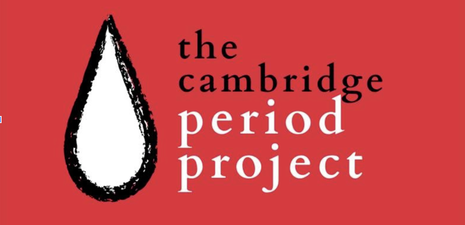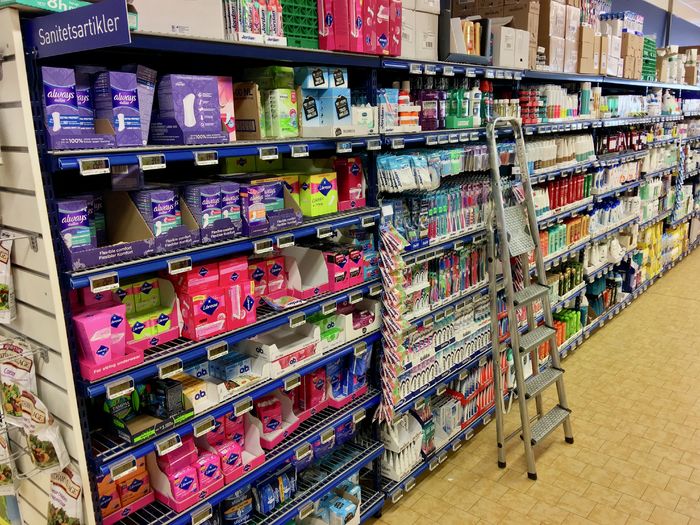Bloody poor access: Open letter demands provision of free menstrual products across Collegiate University
The open letter follows a survey of 630 students from all 31 colleges which found that over half of respondents were unaware of any free menstrual products available to them

The Cambridge Period Project and SU Women’s Campaign last night (28/01) released an open letter calling on the Collegiate University to “take action to ensure fair access to menstrual products for all Cambridge students.”
The open letter is addressed to Vice-Chancellor Stephen Toope as well as the Heads of the 31 colleges. In addition to the open letter, the Project and SU Women’s Campaign will be submitting a paper to the University’s Student Wellbeing Committee, calling for free menstrual products in all faculty and department toilets and writing a bid for the College Levies Panel to obtain funding for a central SU menstrual product scheme.
Chloe Newbold, the Students' Union Women's Officer, explained to Varsity the reason for this two-pronged approach as an attempt to resolve the "current inconsistencies across colleges and the burden placed on college women’s officers in running these schemes."
Citing the UK government’s scheme of providing free period products to students in all English primary and secondary schools, the letter calls on the Collegiate University to, like Scottish universities, provide free period products in their toilets.
The letter makes four demands: firstly, that free menstrual products are provided freely in the toilets of college buildings; that free menstrual products are available in the toilets of university departments and faculty buildings; that free menstrual products are accessible in toilets for all genders and lastly, that free single-use menstrual products are available that have a minimal environmental impact.
The letter follows the Project’s collection of data on Cambridge students' access to menstrual products. The Project conducted surveys of 630 students, across all 31 colleges, as well as surveying JCR and MCR women and welfare representatives.
The Project attributes the difficulty in accessing products or knowledge of the products to the “poor implementation of existing schemes”. The Project also emphasised to Varsity the “huge variability” in the budget for, and method of provision of, free menstrual products. In their survey of JCR and MCR officers, it was found that budgets vary year-on-year, tending to range from £50 to £2,000 on an annual basis.
The survey of students found that 51.6% of respondents find purchasing period products to be a financial burden, with 12.5% of respondents experiencing this burden persistently.
Addressing this financial burden, the open letter states that “given the economic consequences of the COVID-19 pandemic, now it is more important than ever to support those suffering from period poverty. Nobody should ever be forced to decide between buying menstrual products or buying food and other necessities.”
While the survey found that 85% of colleges provide free menstrual products to their students, only 44.9% of respondents to the Project’s survey felt these products were accessible or knew at all about the availability of them. This means over half of students were unaware of the availability of free menstrual products in their college.
In some colleges, the Project found that “free menstrual products are kept in locked cupboards or need to be requested from porters”, stressing that these “methods of delivery are outdated, perpetuate the massive stigma surrounding menstruation and do not adequately support menstruating students.”
Highlighting the detrimental effects lack of access to menstrual products has on the physical and mental wellbeing of women, as well as their life opportunities, the letter states: “By failing to support its students in accessing free menstrual products, the University and 31 colleges are failing to live up to their wider efforts to encourage accessibility and wider participation in higher education.”
The letter continues: “Without access to menstrual products, students will find themselves unable to fully take advantage of all the opportunities available in Cambridge. Further steps must be taken on period poverty in order to foster optimal learning environments and promote student wellbeing.”
Newbold emphasised to Varsity that that the Students' Union will continue to "push for consistent provisions for all menstruating students, and greatly welcome any efforts for greater access to menstrual products both in Cambridge and the wider community." They continued to stress that the University "must absolutely respond to the points raised in our open letter and consider menstrual provision central to their efforts to creating a barrier-free education for all students."
The Cambridge Period Project, established by the Students for Global Health’s Sexual & Reproductive Health Subcommittee, was launched last week to seek to reduce the risks of period poverty both for Cambridge students and the local community.
Lydia Seed, co-chair of the Sexual and Reproductive Health Subcommittee, told Varsity that she wanted to start the Project after conducting surveys of JCR and MCR officers. These surveys made her realise that a “‘period postcode lottery’ exists within our University whereby the level of support provided for students who menstruate varies immensely across the colleges.”
The Subcommittee furthered that “having a period is not a choice. Menstrual products are essential for 50% of the population. Period poverty is detrimental to people’s physical health, mental health and wellbeing, and overall life opportunities. We hope to bring about meaningful action within our university and the local community to support people who menstruate and reduce period poverty in Cambridge.”
A survey conducted last year by Plan International found that 3 in 10 women between the ages of 14 and 21 had issues either affording or accessing sanitary wear in lockdown with over half of these women reporting to having used toilet paper as an alternative to period products. Meanwhile, Blood Good Period, a charity which supplies free period products to those in need, urged students in November to write to their vice-chancellors to highlight the issue of period poverty among students.
The University was contacted for comment.
 Interviews / You don’t need to peak at Cambridge, says Robin Harding31 December 2025
Interviews / You don’t need to peak at Cambridge, says Robin Harding31 December 2025 News / Unions protest handling of redundancies at Epidemiology Unit30 December 2025
News / Unions protest handling of redundancies at Epidemiology Unit30 December 2025 Comment / What happened to men at Cambridge?31 December 2025
Comment / What happened to men at Cambridge?31 December 2025 Features / ‘Treated like we’re incompetent’: ents officers on college micromanagement30 December 2025
Features / ‘Treated like we’re incompetent’: ents officers on college micromanagement30 December 2025 Theatre / We should be filming ADC productions31 December 2025
Theatre / We should be filming ADC productions31 December 2025








